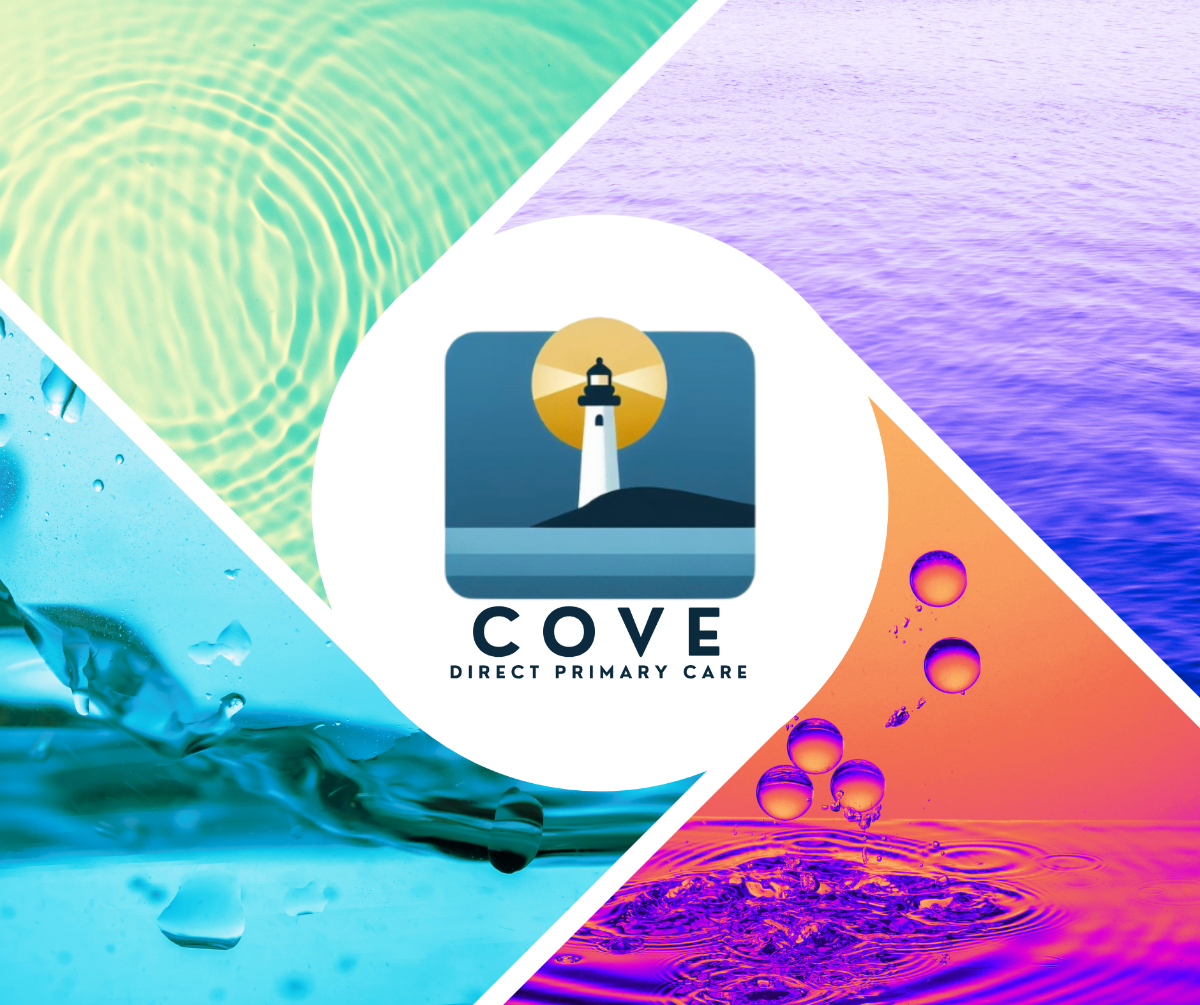Summer in Columbus, IN, means hot days, outdoor adventures, and family fun, but it also brings the risk of dehydration. Proper hydration is critical for kids playing at the park, adults working outdoors, or seniors enjoying a walk. At Cove Direct Primary Care (DPC), we believe in empowering our community with evidence-based health knowledge. This guide dives into the science of hydration, offering practical tips to keep your family healthy and energized all summer long.
The Science of Hydration
Water makes up about 60% of the human body, playing a key role in regulating temperature, transporting nutrients, and supporting organ function. According to the National Academy of Medicine, inadequate hydration can lead to fatigue, headaches, and even heat-related illnesses like heat exhaustion (CDC, 2023). Kids are especially vulnerable, as they have a higher surface-area-to-body-mass ratio, losing water faster during activity. Adults and seniors also face risks, particularly in humid Indiana summers, where sweat doesn’t evaporate efficiently.
3 Evidence-Based Insights on Hydration
- How Dehydration Affects Your Body Dehydration occurs when fluid loss exceeds intake, impairing physical and cognitive performance. A 2020 study in The Journal of Physiology found that just 2% body weight loss from dehydration reduces endurance and focus, impacting kids’ playtime or adults’ productivity. Severe dehydration can strain the heart and kidneys, especially in seniors. Signs include dry mouth, dark urine, or dizziness—watch for these during summer outings.
- Calculating Your Fluid Needs The National Academy of Medicine recommends daily fluid intake of about 91 ounces for women and 125 ounces for men (including water from food), with kids needing 40-70 ounces based on age (Pediatrics, 2018). Hot weather or exercise increases needs by 10-20%. A simple rule: drink half your body weight in ounces daily (e.g., a 150-pound person needs ~75 ounces). For kids, aim for 1 ounce per pound during active days.
- Hydrating Beyond Water While water is the gold standard, foods and other beverages contribute significantly. A 2021 study in Nutrientsfound that fruits like watermelon (92% water) and vegetables like cucumber provide hydration plus electrolytes like potassium. Milk and oral rehydration solutions are effective for kids post-activity (American Academy of Pediatrics, 2019). Avoid sugary sodas, which can increase dehydration risk due to high sodium.
Practical Hydration Tips for Families
- Kids: Make hydration fun with colorful water bottles or fruit-infused water (e.g., lemon or berries). Set a timer for hourly sips during play at Columbus’s Donner Park.
- Adults: Carry a reusable bottle and sip throughout the day, aiming for clear or light-yellow urine as a hydration check. Add a pinch of salt to water during intense outdoor work to replace electrolytes.
- Seniors: Schedule water breaks to counter reduced thirst sensation, common with aging. Pair meals with hydrating foods like soups or melons.
- Family Fun: Plan a “hydration challenge” during outings, tracking who drinks their goal amount, with a reward like a family movie night.
Stay Hydrated, Stay Healthy
Proper hydration powers your summer, from kids’ sports to family picnics. By understanding the science and applying these tips, you can keep your family energized and safe. Want to learn more about staying healthy year-round? Text (812) 227-6024 or visit www.covedpc.com to schedule a free consultation with Cove DPC and explore personalized care for your family.
References:
- Centers for Disease Control and Prevention (CDC). (2023). Heat Stress—Hydration.
- The Journal of Physiology. (2020). Dehydration and Exercise Performance.
- National Academy of Medicine. (2005). Dietary Reference Intakes for Water.
- Pediatrics. (2018). Fluid Needs in Children.
- Nutrients. (2021). Hydration from Food Sources.














